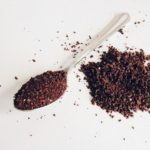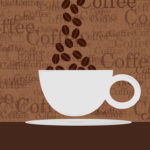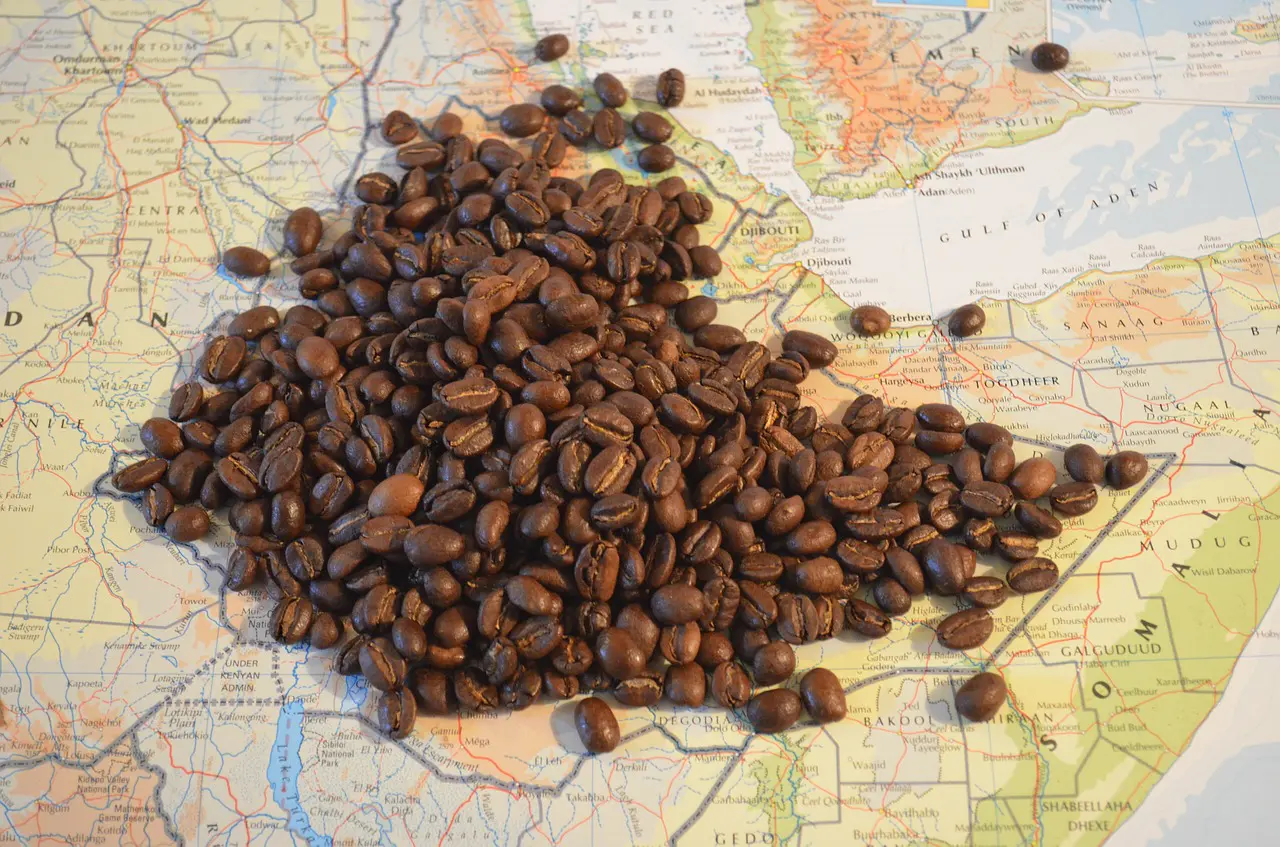The world loves coffee. In recent years, however, the world has also become much more health-conscious, and every now and then there’s a little scare in the world media about whether drinking too much caffeine is bad for you. Enter, if you dare – the world of decaf coffee.
At A Glance: Our Top 5 Best Decaf Coffee Options Of 2023
With so many delicious varieties on the market, though, just how is a discerning coffee drinker to decide? Welcome, then, to our short and snappy guide to some of the best decaf coffee beans we could find.
- OUR TOP CHOICE
Dark and delicious with a hint of caramel, citrus, and cocoa, Café Don Pablo was our very favorite decaf coffee. The decaffeination process uses water to remove as much caffeine as possible from this Colombian gourmet whole bean coffee, which ships in 2 or 5-pound bags.
While the packs are not vacuum sealed, there is a one-way degassing valve – CO2 is allowed out, but no oxygen is allowed in.
The acidity is low. The finish is clean and smooth. We’ve mentioned the caramel, cocoa, and citrus hints, but we’re pretty sure there’s a bit of walnut in there too.
These 100% Arabica beans are roasted in small batches. Due to the decaffeination, the beans may appear to be a little darker than you’d typically expect. The end result is 99.9% caffeine-free. Not that you’d know it from the taste – the flavor really is like the real thing. Just without the caffeine. Oh, and they’re GMO-free too.
The company grows, harvests, and processes their own coffee beans in Colombia. Through the Sharing Certified Program, the company also manages the production of over 1 million coffee plants. The coffee is never, ever blended with Robusta, past crop, or sub-par beans. We found it worked beautifully in a traditional drip machine, a hand drip mechanism, French press, and cold brew.
We also loved this medium roast decaffeinated Arabica Sunday Drive coffee from Verena Street. Shipping in 2-pound packs (or 32 ounces, if you prefer), the caffeine is removed via the Swiss Water Process. It’s Rainforest Alliance Certified.
You can also buy 80 ounce, 12 ounce, or 11-ounce bags. The Swiss Water decaf method means this coffee has a full-bodied aroma and robust flavor without any bitterness. They’re also kosher certified by the Orthodox Union.
On arrival in the US, the beans are craft roasted and packaged as soon as possible in Iowa, at an independent family firm in Dubuque. And if you’re wondering why it’s called Verena Street, it was the name of a lane in the peaceful, quiet neighborhood down by the Mississippi River, back in the day.
The decaf variety tastes relaxing and smooth – there’s no need to sacrifice flavor just because it’s low in caffeine. The flavor is pretty creamy, dark, and smooth, something akin to a typical espresso. Taste-wise, it’s also pretty close to Folgers decaf coffee. The Swiss Water process used removes 99.9% of the caffeine.
The company also takes pride in sustainable sourcing: including agricultural methods that aim to protect soil, waterways, and wildlife, and support the well-being of farmers.
100% Arabica beans are expertly blended to create unique and delicious flavors. You’ll get the very best results with cold, clean water, ideally filtered or bottled. Use around 2 tablespoons of water for every 6 ounces of water, depending on your brewing method (we like this one with the drip method in particular).
If it’s a dark roast, fine grind coffee you’re looking for, then give Kirkland’s signature decaf Dark Roast a whirl. It ships in 48-ounce packs, and it’s all Arabica. If you want something to compare it with, it’s pretty close to Starbucks.
Arabica beans usually produce a smoother, less bitter coffee than Robusta, the other variety, although how the coffee is roasted makes a difference too. Perhaps counter-intuitively, dark roasts are usually more mellow than light roasts. And decaffeinated coffees are often dark-roasted.
This coffee works especially well in a French press or in a drip coffee maker, the slower the better. The slower the extraction method, the less acidic the end coffee. If you combine a slow brewing method with a fine grind, you’ll also get maximum flavor.
We have to confess we also love the packaging on this one – it ships in a metal can, sealed at the factory. It’s a decent, all-round decaf coffee.
No overview of modern coffee, caffeinated or not, would be truly complete without a nod to the world’s most familiar coffee shop, with one of the world’s most famous mermaids. If you want a super-convenient decaf coffee, then may we suggest Starbucks VIA Instant Decaf, now over a decade old? It’s an Italian roast, dark roast, and you get 50 servings in a pack.
Only Arabica coffee beans are used, and the flavor is sweet and rich. You’ll be able to pick up hints of caramelized sugar in there. It’s super-convenient and good value for money. You don’t need any specialist equipment for this one, just hot water, 10 seconds, oh, and your favorite coffee cup. Each packet gives you an 8 ounce serving of coffee.
You can even use it to make a cool coffee, if you prefer. You just need to allow a little more time for the beverage to dissolve, and make sure you give the final result a thorough stir.
The best way we can describe this coffee is that it’s sort of a darker Espresso roast, but without that smoky aftertaste that you find in French roast. There’s no sugar in these sticks.
It might be called Eight O’Clock Whole Bean, The Original Decaf, but you can enjoy this coffee at any time of the day or evening. Or even through the night, if you’re one of those night owl types.
It’s a 50% decaf blend, so a little higher than some others, and there’s a range of sizes including 24 ounces.
Eight O’Clock coffee has been produced for over 150 years. It’s kosher certified and roasted with love and care by master roasters. In many countries, eight pm is the time of day associated with supper, but it varies around the world. And should it be after eight, there’s more than one dark mint chocolate which goes especially well with after-dinner coffee, decaffeinated or otherwise.
You’ve probably picked up by now that many of the decaf roasts we sampled are dark roasts, which retain maximum flavor with minimum bitterness. And Jeremiah’s Pick Coffee is no exception. This water processed coffee is organic and ships in 10-ounce bags – you get three in a pack.
Like many of the decaf coffees we investigated, the Swiss Water process was used to extract the caffeine. We detected dark chocolate. We detected caramel. And we definitely detected 100% Arabica beans – both in aroma and flavor.
It all starts with the bean. “Right Roast. Right Taste” is more than just a slogan here. The color profile of each batch is matched to bring out the subtleties of the character and origin of each coffee.
This coffee is CCOF certified organic and certified kosher by Northern California’s Vaad Hakashrus. Once the caffeine has been all but removed, the beans are roasted in the French style. This gives the end product a smooth flavor profile. The coffee is also Rain Forest Alliance certified.
The name of this coffee couldn’t be further from the truth – it’s far from no fun. This medium-dark roast with the name of No Fun Jo Decaf takes whole bean Arabica coffee. The caffeine content is then reduced via the Swiss Water Process.
It’s Fair Trade and Organic certified Kosher Certified, and Swiss Water Process Certified.
Jo Coffee is one of the subsidiaries of Specialty Java Inc.
It ships in small 12 ounce bags or in larger 2-pound bags. So let’s get down to the fun bit – the taste. You’ll pick up milk chocolate. You’ll pick up sweet blueberry cupping notes. And other than that, it’s round and robust and delightful.
The processing method uses temperature, time, and of course, water, to bring you a 99.9% caffeine-free product. To be granted USDA Certified Organic status, coffee has to be cultivated on farms that comply with the high standards of the United States Department of Agriculture.
No contamination by chemicals is allowed. All farming operations are subject to an annual compliance inspection, as are any roasting operations.
It’s another 100% Arabica for the Gevalia Decaf House Blend, which ships in a 6 pack of 12-ounce bags. The beans are dark roasted, and the coffee is 99.7% caffeine free.
This Swedish coffee has 150 years of expertise behind it and is known for its mellow, never bitter taste.
There’s a gorgeous hint of caramel, and we found this blend was most delectable when brewed with water between 195 to 205 degrees Fahrenheit. It worked especially well in a percolator and a French press. We reckon it would be pretty good in a drip machine too.
If you’re wondering about the hints of caramel, it’s all to do with the roasting process. It starts with the Maillard reaction, which takes place between 302 degrees and 392 degrees Fahrenheit. The caramelization of the sugars in the beans occurs when the roasting temperature is between 338 degrees and 392 degrees Fahrenheit.
The name of this decaf coffee gives you a pretty good idea of what to expect. Yes, this isn’t a Kicking Horse so much as a kicking coffee. It’s dark roast and whole bean, decaffeinated via the Swiss Water Process method.
It ships in 10-ounce packs, and it’s certified Fairtrade, Kosher, and Organic. The company doesn’t believe, just because a coffee has had the caffeine taken out, that the flavor should be any less delightful. And we can vouch for the fact that it’s just as delicious as an “ordinary” coffee.
You get a mellow tasting, delicious, dark, deep brew. Your taste buds will be able to discern roasted hazelnuts. Plus, a chocolate sort of balanced body. It works especially well in a drip machine, French press, and pour over mechanism. It even makes a decent cold brew and espresso.
The beans are grown in Central and South America and then roasted with the breath-taking scenery of the Rocky Mountains as a backdrop. We loved the Fairtrade credentials – it’s fair for farmers, and profits are reinvested in the community for sustainable future growth.
As we all know, there are times when the sheer convenience of a Keurig machine provides everything you need from a coffee, at the touch of a button. And now you can enjoy decaf the Natural Water way, with this San Francisco Bay decaf French Roast pods.
They’re K-Cup compatible, no less. Not only that, but they’re also compostable. Fully, commercially compostable. Certified by BPI. You get to enjoy the convenience of a Keurig K-Cup with the conscience of a composter.
The beans hail from Central and South America. They’re roasted dark. They’re 100% Arabic. They’re also certified Kosher.
What’s more, San Francisco Bay Coffee is family-owned. The company takes real pride in the customer service and products they provide. Coffee farmers are paid a fair price for their crops, and the company also takes the high ground in social and environmental responsibility, giving back to the community wherever possible.
As part of their Community Aid Program, thousands of acres of rainforest have been restored. Only shade-grown farms are used. The company has also planted their own coffee on their own organic farms.
What is Decaf Coffee?
Let’s just take a little time out to cover how decaffeinated coffee is created, so you can keep the process in mind when you’re choosing your decaf beverage. In fact, let’s take a (virtual) trip back in time, to find out how it all began.
At the start of the 20th century, a ship carrying a precious cargo of coffee was swamped by seawater. It resulted in the caffeine content of the beans being literally washed out, but the taste of the coffee, and its other properties, were not affected.
We also owe thanks to Ludwig Roselius, founder of Kaffee HAG. After some thought and experimentation, he worked out that the caffeine content of coffee could be almost removed if you steam the beans with various acids.
He used benzene as the solvent to remove the caffeine, and, hey presto! Decaffeinated coffee to go. Almost. Modern decaffeinated coffee making methods have advanced a little – but, perhaps surprisingly, not all that far.
How is Coffee Decaffeinated?
Let’s take a look at how decaf coffee is made. There are several methods of removing caffeine from coffee.
The most common way used today is to soak the coffee beans in water and then add a solvent, typically ethyl acetate. This is a natural fruit ether found in fruit such as apples and pears. The solvent draws the caffeine out of the beans while they are still green.
Benefits of Decaf Coffee
There are many benefits to be had from drinking decaf coffee. Quite apart from the joy of the aroma and taste. While decaf coffee might not have quite as many antioxidants as the caffeinated version, it’s still high in antioxidants.
If you belong to one of the groups who is advised not to drink coffee, decaf allows you to enjoy the benefits of coffee. These groups include pregnant or breastfeeding women, or those taking prescription meds that might interact with coffee.
Be On The Alert For….
Beyond the taste profile, certain factors will help you choose the best decaf coffee for you. The region where coffee is grown, the altitude, and the type of soil, all have an effect on the coffee beans and how they taste. The roasting process also affects the flavor – so you might want to think about these factors as you’re making your selection.
There’s also the amount of caffeine. And then there are other considerations, such as sustainability, or the breadth of certifications. These might range from kosher to USDA organic, Rainforest Alliance to Fair Trade. Only you can decide if these will affect your buying choices.
Is There Caffeine in Decaf Coffee?
In short, yes, there is caffeine in decaf coffee. Decaf coffee doesn’t mean “caffeine-free”. It’s more accurate to think of it as “caffeine reduced”. Some processes reduce the amount of caffeine by 50%.
Some processes bring the amount of caffeine down by over 97%. And still others reduce the caffeine content by as much as 99.9%.
How Much Caffeine Is In Decaf Coffee?
Decaf coffee caffeine levels aren’t zero. There’s usually at least a trace of caffeine in there.
Let’s just take a look at how much caffeine in decaf coffee is typical. For comparison, a typical 6 to 8 ounce serving of ordinary coffee has around 100mg of caffeine. An equivalent serving of decaf coffee has around 7 mg of caffeine.
Less Caffeine, Less Taste?
It’s a myth that all decaf coffees taste weaker than caffeinated coffee. Some do, some don’t. And deciding on what is the best tasting decaf coffee is a matter of personal taste – no two palates are identical.
It all comes down to personal taste. Some taste of citrus, some of chocolate, some of hazelnut or walnut. You are likely to detect a hint of caramel in many decaf coffees, though – due to the roasting process.
Is Decaf Coffee Good For You?
There’s a lot of confusion about whether decaf coffee is bad for you, or is decaf coffee good for you? Well, in the main, it’s good for you. You get the pleasure and benefits of coffee, including the aroma and the taste. Just with less of the side effects from caffeine that are sometimes talked about.
While it may have been true that some of the chemicals used in the decaffeination process might not always have been the most benevolent substances you could ingest, many methods in use retain all the good bits of coffee. The antioxidants, the flavor – just not the same amount of caffeine.
So What Is The Best Choice?
We came. We sniffed. We sampled. We compared the amount of caffeine. And the convenience. And the brewing methods.
And above all, we compared the flavors. And we concluded – yes, our first choice is still Don Pablo. So, all that remains is to get brewing.

Hi my name is Larry, a coffee aficionado from the US. I have already visited Colombia, Sumatra, Guatemala, Costa Rica, Ethiopia and Jamaica in my pursuit of finding the best-tasting coffee beans. I currently write from Bali and enjoy the relaxed life that you can only find in Canggu. Welcome to my coffee world!
Last update on 2023-06-02 / Images from Amazon Product Advertising API.





